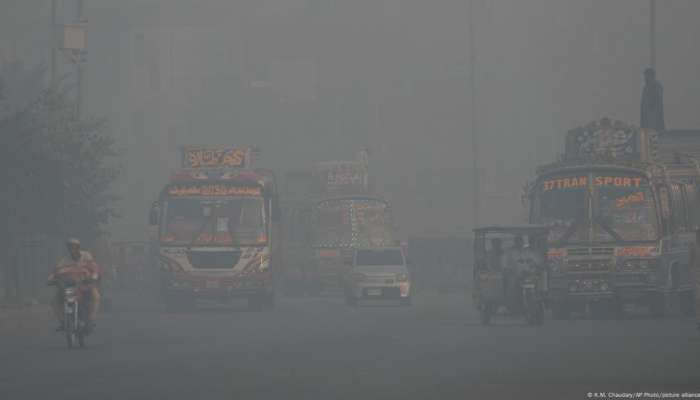
Primary schools in Pakistan's second-largest city Lahore will close for a week as a result of unprecedented air pollution, the provincial government announced Sunday.
The metropolis in the country's east has for days been blanketed in a thick layer of smog caused by traffic fumes, smoke from seasonal crop burning on farms, and pollution-trapping winter temperatures.
Lahore, home to of 14 million people, was at the top of a real-time list of the world's most polluted cities on Sunday, based on data released by Pakistani authorities and Swiss air quality monitoring group IQAir.
The city's air quality index, which measures a range of pollutants, climbed to over 1,000, which the Punjab provincial government described as "unprecedented." The level of 300 is already considered "dangerous."
What measures has the government taken?
"Don't leave your homes," Punjab senior minister Marriyum Aurangzeb told a news conference. "This smog is very harmful for children. Masks should be mandatory in schools. We are keeping an eye on the health of children in senior classes."
As part of the emergency measures, 50% of office employees have been ordered to work from home from Monday, Aurangzeb said, while hospitals would be given smog counters.
The Punjab government has deployed special police units to check emissions from factory sites, vehicles with faulty engines and the burning of crop residues.
Aurangzeb also blamed the worsening air quality on winds carrying pollution from neighboring India.
"This issue cannot be solved without talking to India and without joint efforts on both sides of the border," she said.
What does air pollution mean for health?
Smog levels often deteriorate in the region as winter approaches because cooler temperatures trap pollution close to the ground.
According to the World Health Organization, air pollution can cause a raft of health problems, with prolonged exposure increasing the risk of strokes, heart disease, lung cancer and respiratory diseases.
Children can be particularly vulnerable to toxic air because their lungs are less developed and they breathe more rapidly than adults, taking in more air relative to their size.
The UN children's agency UNICEF says nearly 600 million children in South Asia are exposed to high levels of air pollution.
India’s capital Delhi battles ‘eyes-watering’ pollution